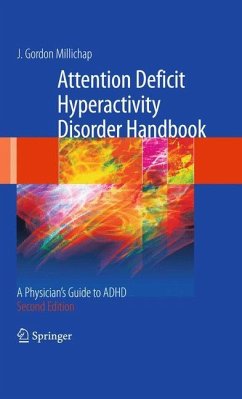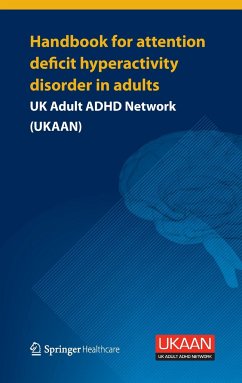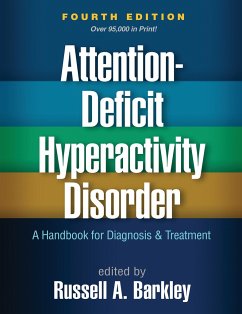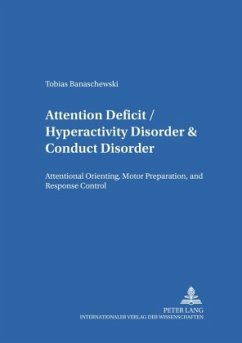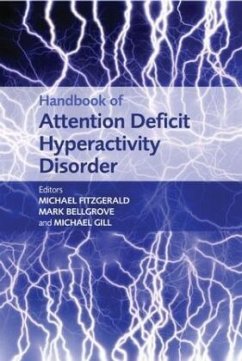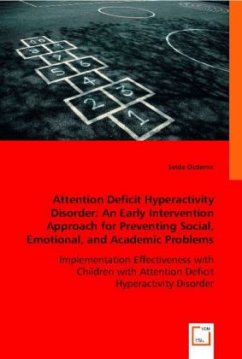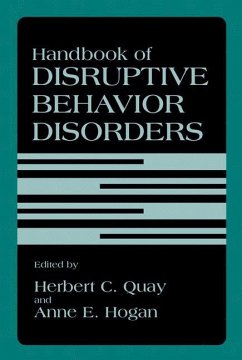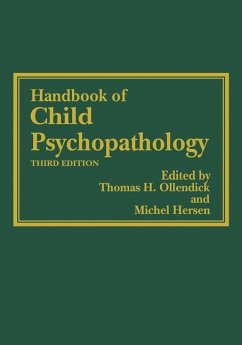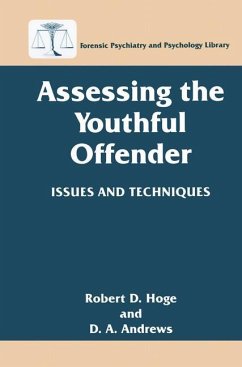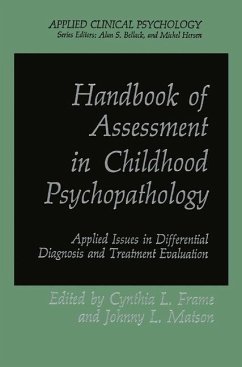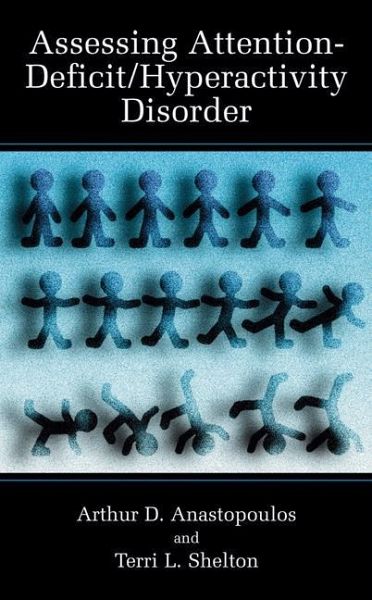
Assessing Attention-Deficit/Hyperactivity Disorder
Versandkostenfrei!
Versandfertig in 1-2 Wochen
77,99 €
inkl. MwSt.
Weitere Ausgaben:

PAYBACK Punkte
39 °P sammeln!
Over the past two decades, the assessment of Attention-Deficit/Hyperactivity Disorder (AD/HD) has evolved into a sophisticated balance of science and clinical judgement essential for arriving at reliable and valid diagnostic de- sions. Because of the precarious mix of clinical and empirical skill needed to evaluate children with this disorder, diagnostic practice in this area has been found wanting by many critics. In fact, a 1998 National Institutes of Health consensus panel concluded that "existing diagnostic treatment practices ... point to the need for improved awareness by the health serv...
Over the past two decades, the assessment of Attention-Deficit/Hyperactivity Disorder (AD/HD) has evolved into a sophisticated balance of science and clinical judgement essential for arriving at reliable and valid diagnostic de- sions. Because of the precarious mix of clinical and empirical skill needed to evaluate children with this disorder, diagnostic practice in this area has been found wanting by many critics. In fact, a 1998 National Institutes of Health consensus panel concluded that "existing diagnostic treatment practices ... point to the need for improved awareness by the health service sector conce- ing an appropriate assessment, treatment, and follow-up. A more consistent set of diagnostic procedures and practice guidelines is of utmost importance" (p. 21). Drs. Arthur D. Anastopoulos and Terri L. Shelton have designed a book that addresses this need. A number of themes are highlighted throughout the text. Perhaps the most important is that the assessment guidelines set forth in this book represent a balance between science and practice. The authors account for the realities of clinical practice in an age of managed care while challenging clinicians to heed the lessons of empirical research. Although the use of empirically based asse- ment procedures may at times fly in the face of cost constraints (e. g. , systematic evaluation of medication effects), the authors present a strong argument for them. Further, they call upon their vast clinical experience to provide concrete suggestions for translating research findings into effective evaluations.





